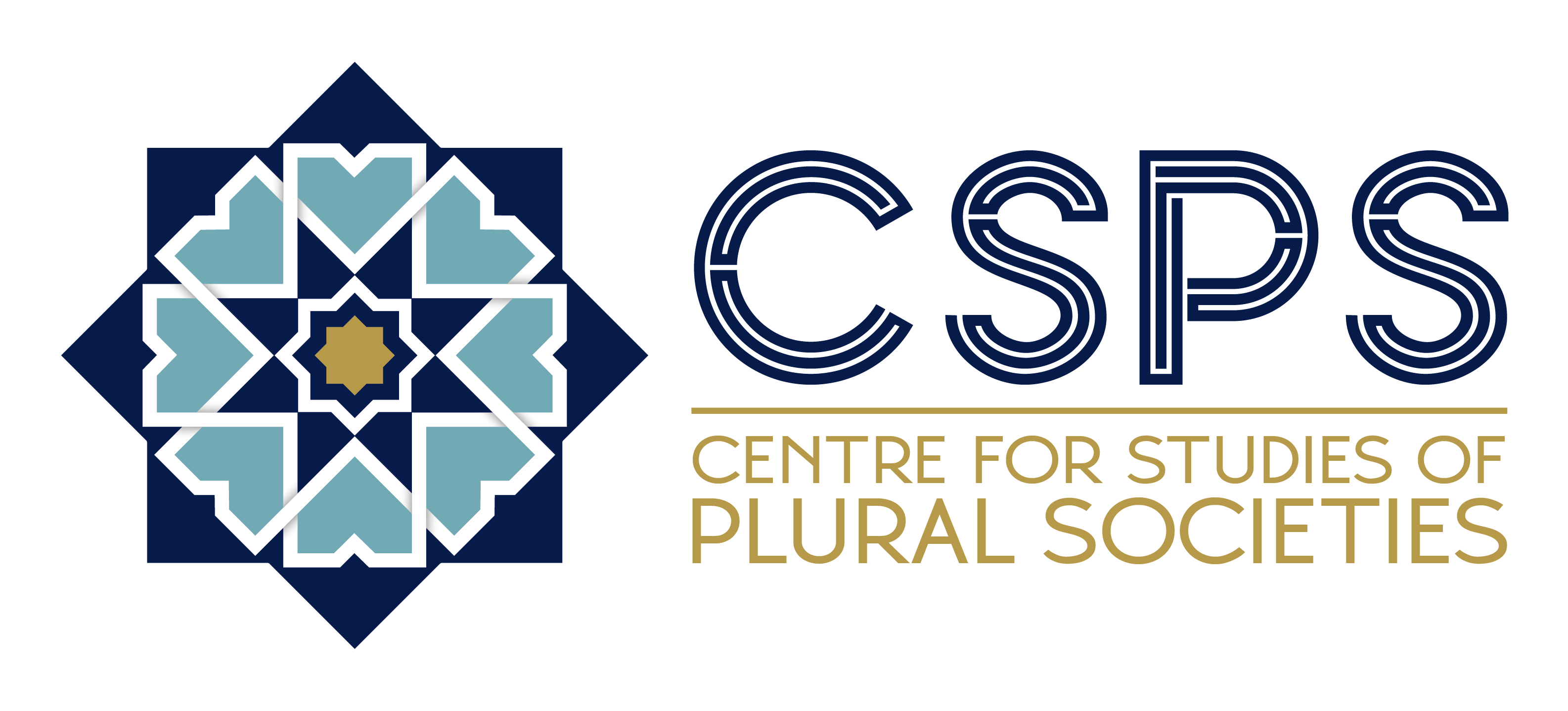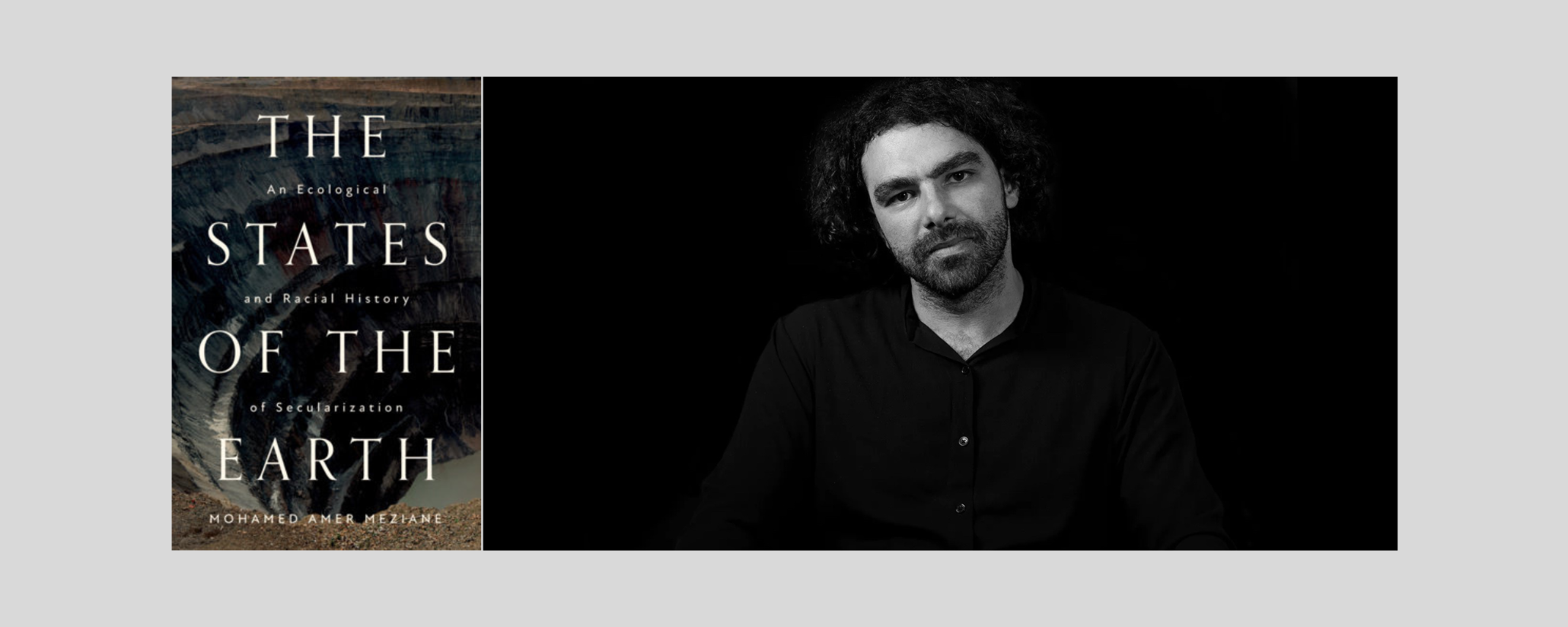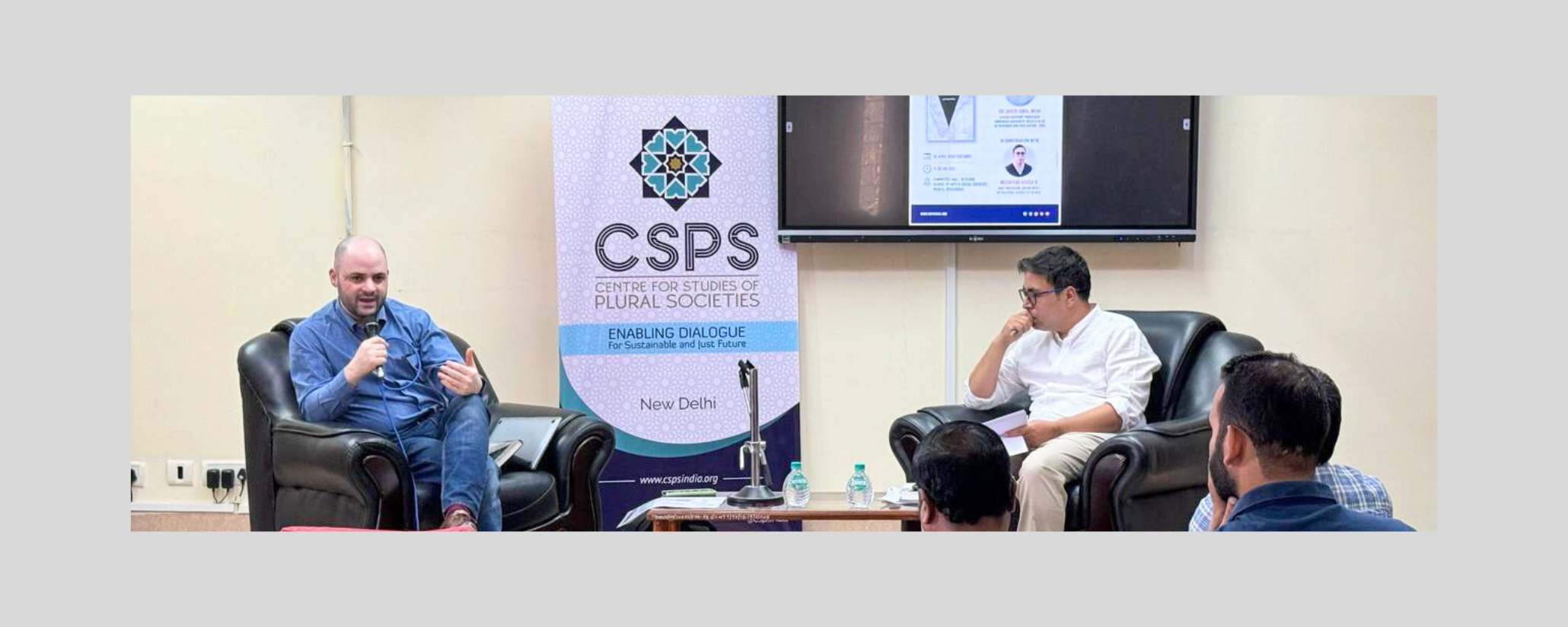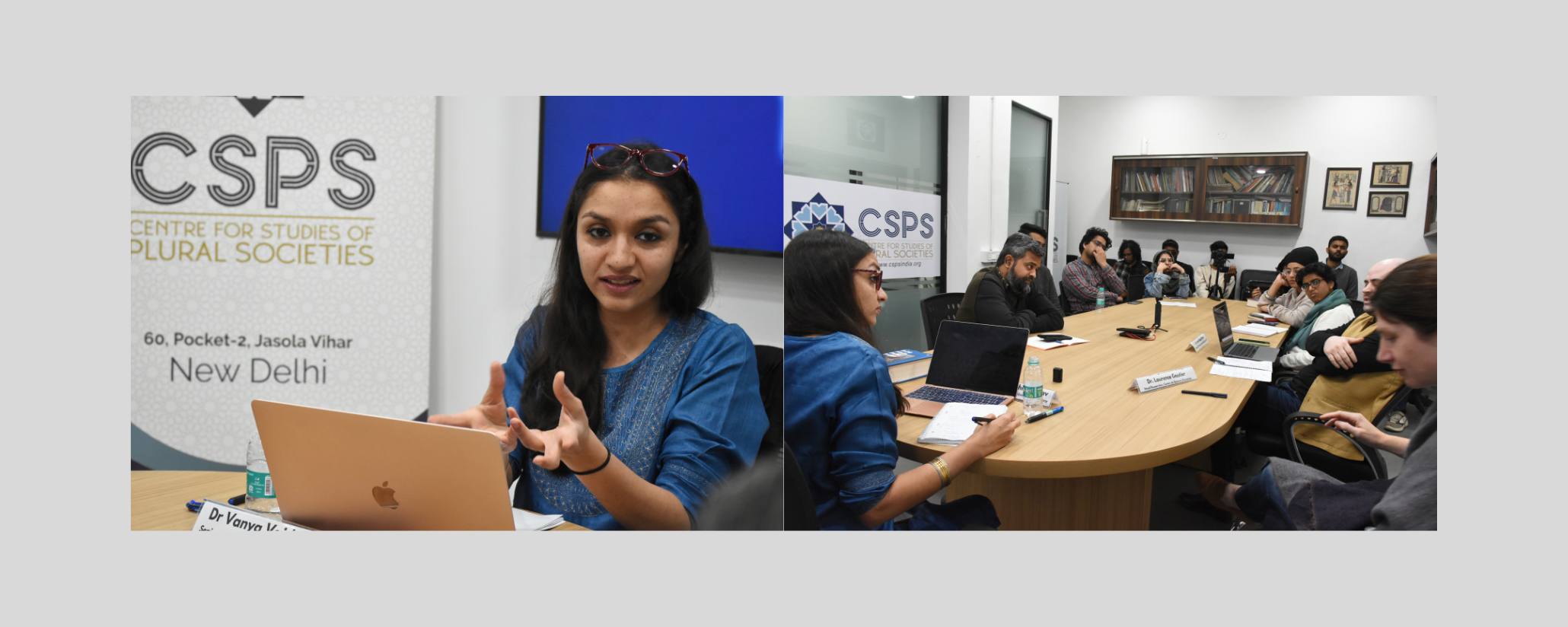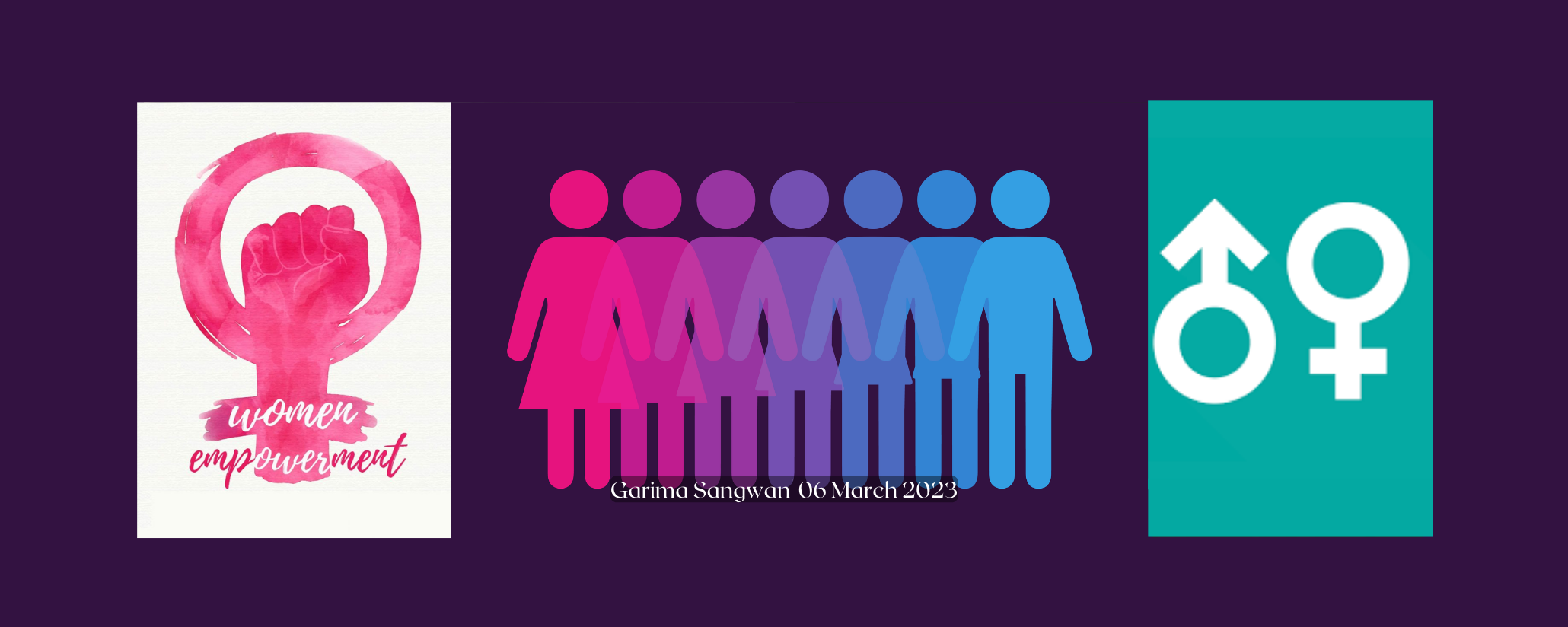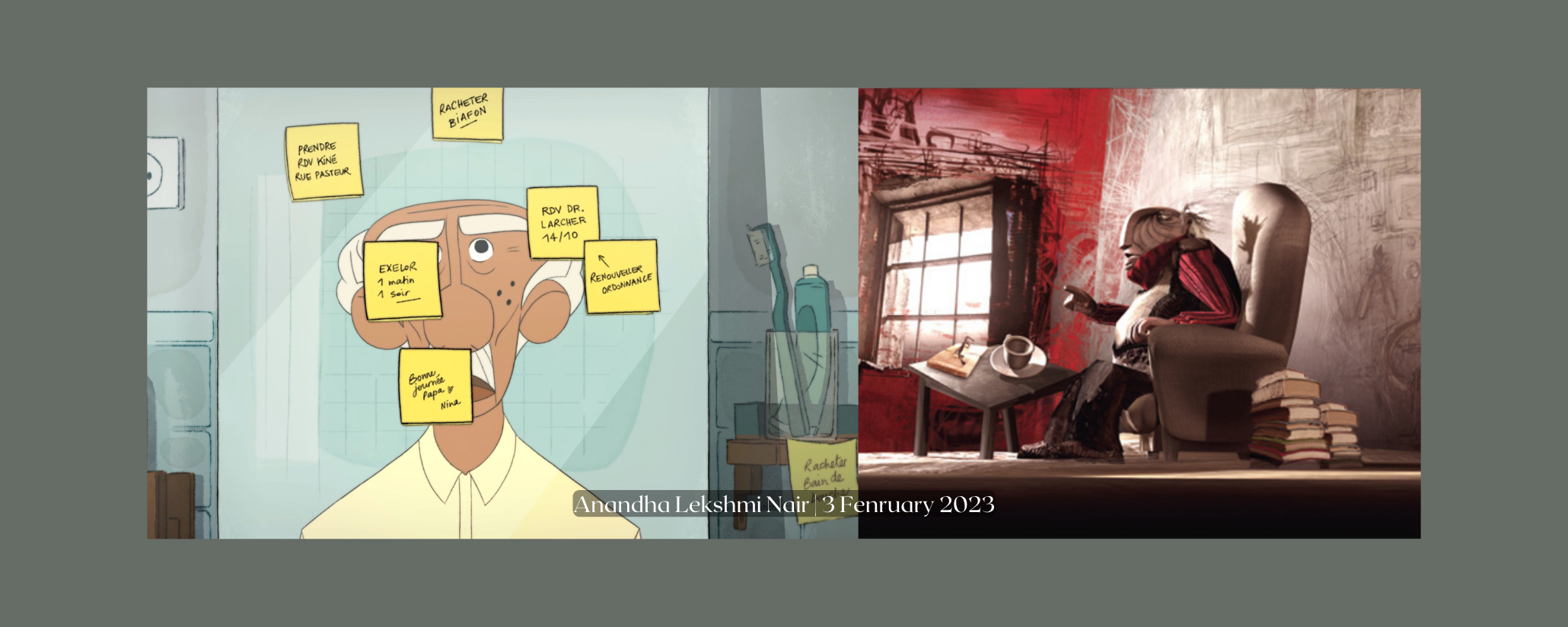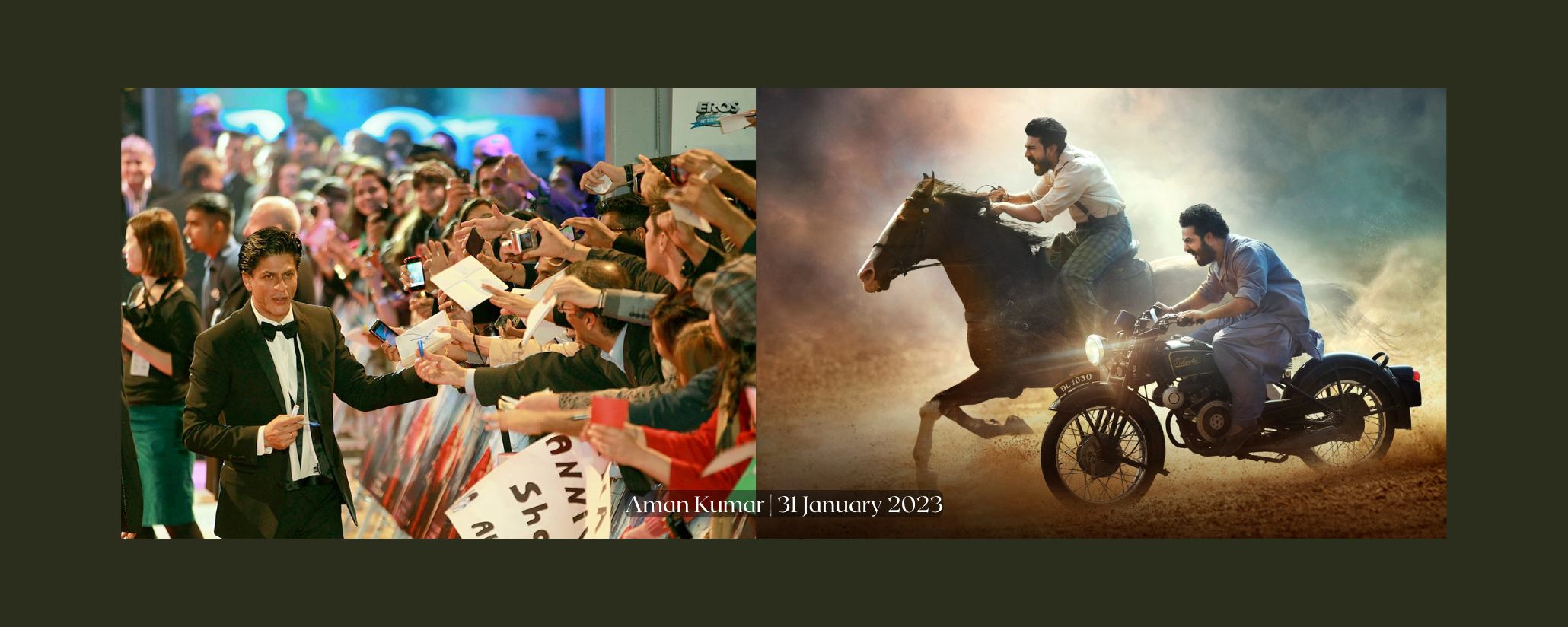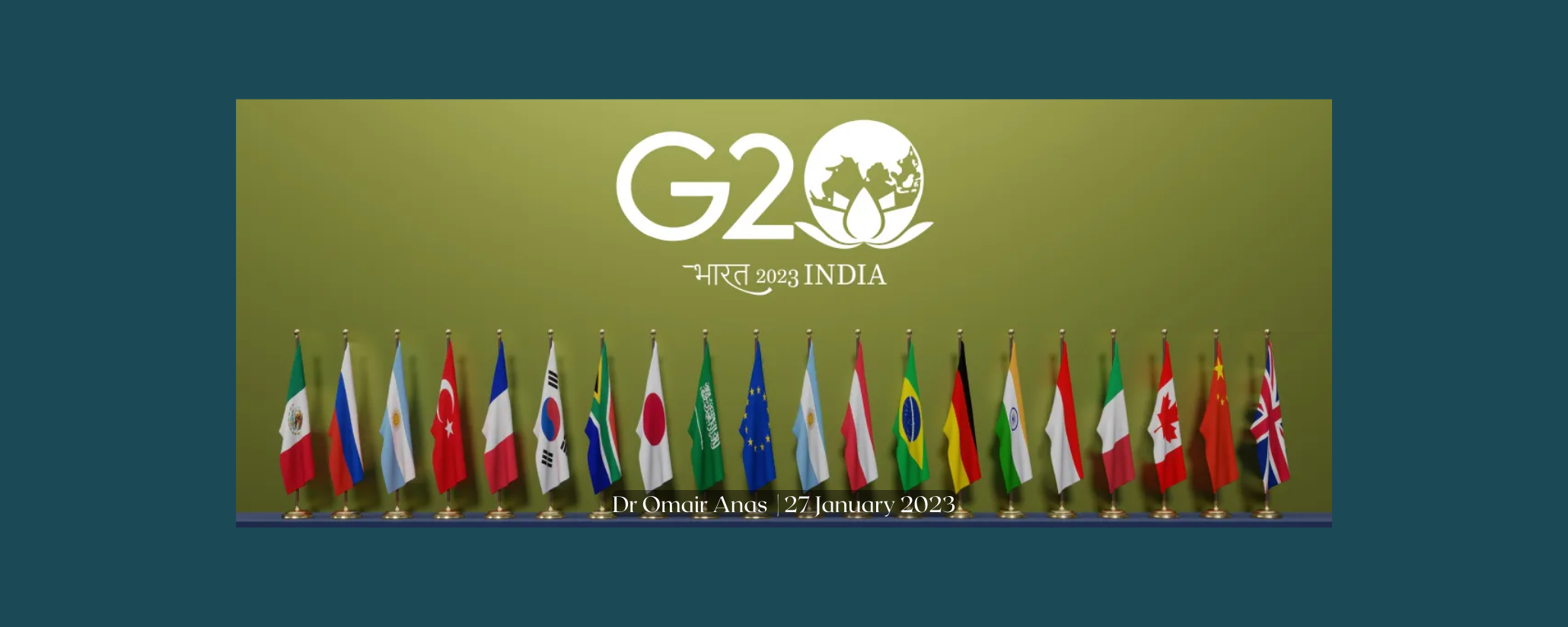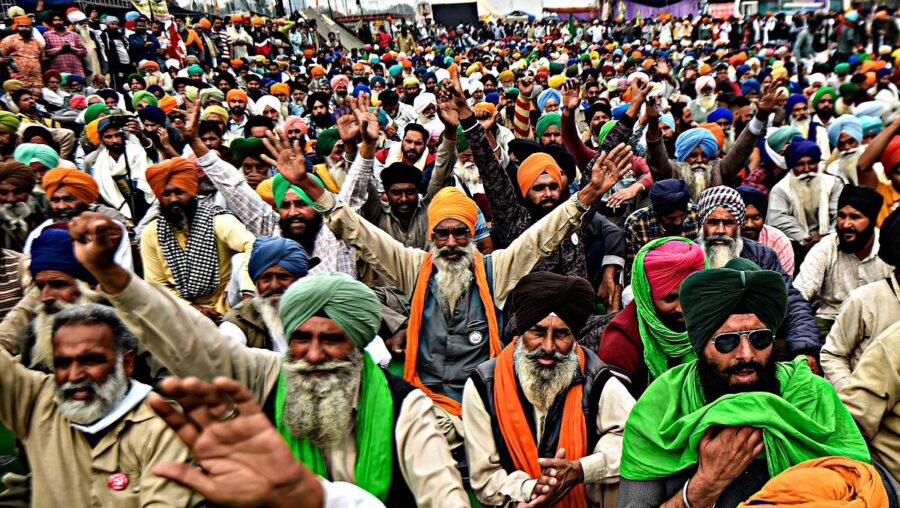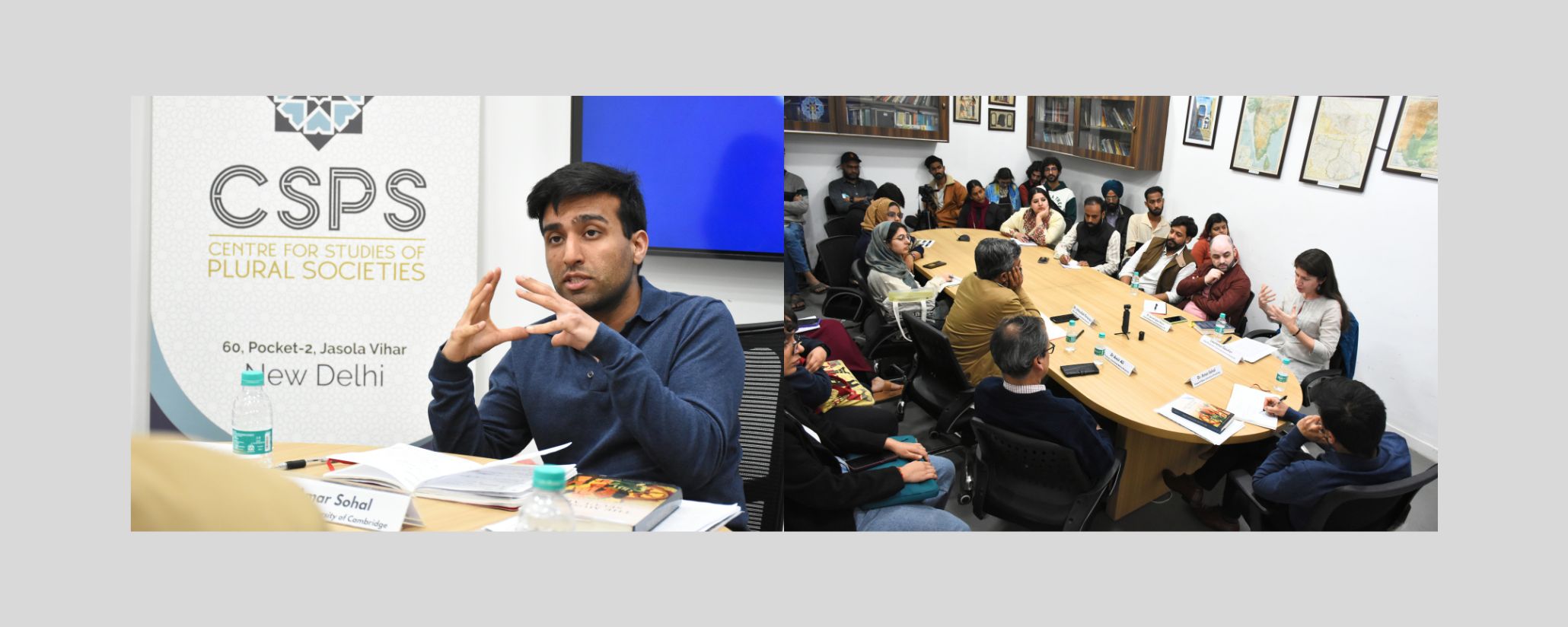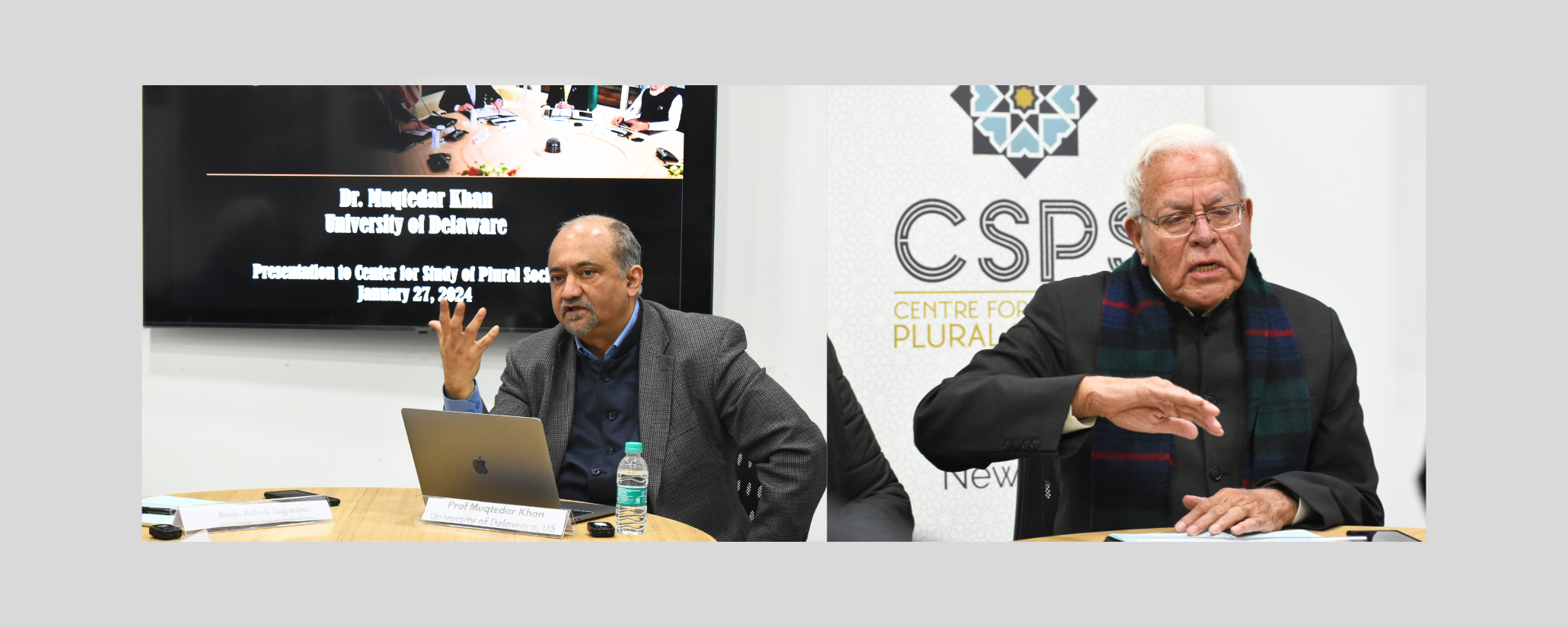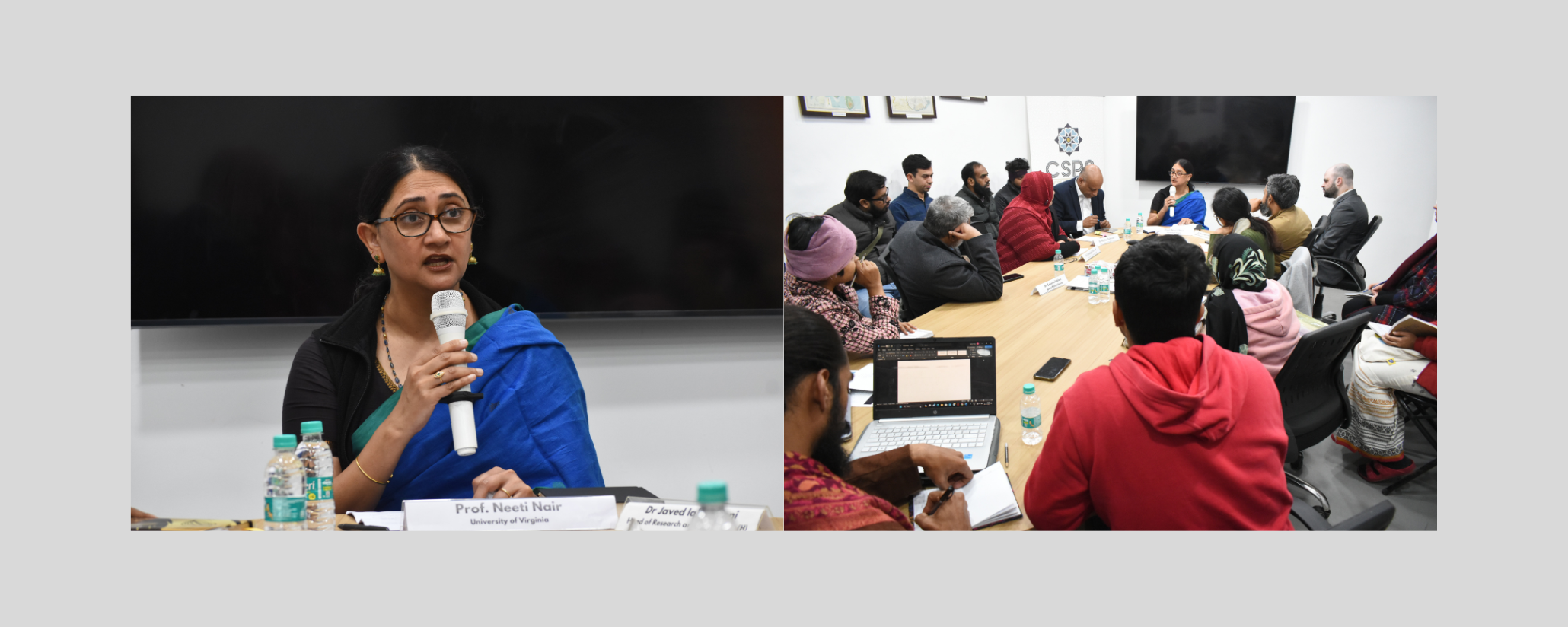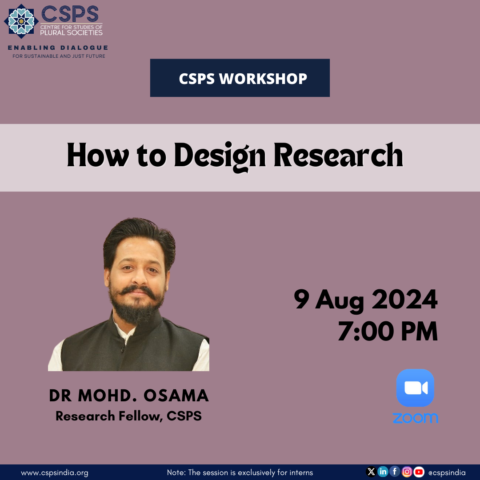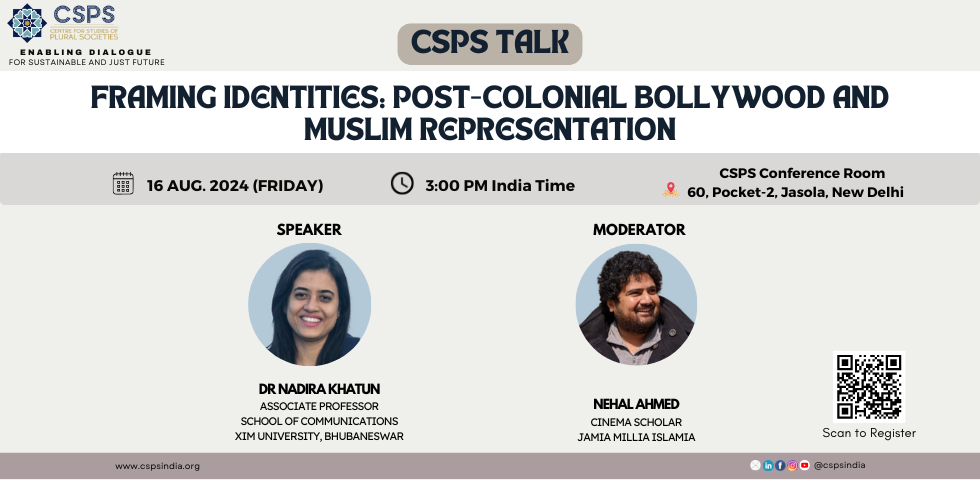Book Discussion | The States of the Earth: An Ecological and Racial History of Secularization
Book Discussion | “Sovereign Anxiety: Public Order and the Politics of Control in India, 1915-1955”
Air Quality Monitoring Measures in India
Book Discussion | “Being Hindu, Being Indian: Lala Lajpat Rai’s Ideas of Nationhood” by Vanya Vaidehi Bhargava
Research
CHANGING DIMENSIONS OF WOMEN EMPOWERMENT: GENDERED SPATIAL ARRANGEMENTS
There have been attempts to understand the existence of gender stratification historically and across cultures. The long-drawn struggle of feminists fighting for access to certain spaces has been predominantly regarding their participation and occupying public spaces. Why is it important to redefine the concept of public spaces? What is the need for safe public space, and why is it necessary to claim public spaces for women and, thus, for the feminist movement to succeed? Some of the major themes this article engages with are the inseparability of knowledge and spaces, the connection between space and gender stratification, and notions around women’s access to certain spaces and within supposedly correct timing brackets.
Depicting Dementia: Representation of Cognitive Health and Illness in Select Animated Short Films
Patients who have dementia are unable to remember events or happenings for more than a few moments at a time, resulting in them repeating their conversations, forgetting people’s faces, linguistic capabilities, etc. Unlike the popular notion, dementia affects the patient more than merely losing their immediate memory of things, events and people. At the onset, the patient may have difficulty navigating familiar environments like the supermarket or the park. Their attention span is also highly affected, with the patient zoning out of a conversation and merely staring into space mid-sentence.
The Popularity of India’s Cinema and the Role of Soft Power
Joseph Nye defined the concept of ‘Soft Power’ as the ability to obtain a preferred outcome by attraction rather than coercion or force. Thus, if a country aims to influence the choices of another country in contemporary times, it must take the route of co-option and seduction rather than threats and inducements.
Opportunities and Challenges of India’s G-20 Presidency
As India has assumed the G-20 Presidency, the international political discourse and global agenda are going to see many new narratives – non-traditional issues, and of course, non-Western assertions.
India’s steady rise on the world stage is a better-late-than-never moment that many world powers, middle powers, and smaller nations expected and desired to happen, in the hope of a more balanced world order. Financially, India promises them a vast and demanding market; offers more non-prescriptive trade relations and investments to smaller nations; carries limited unilateral military and strategic ambitions, and gets along with both Western and non-Western blocs.
No Results Found
The page you requested could not be found. Try refining your search, or use the navigation above to locate the post.
Sri Lanka Under Liquidity Trap
Sri Lanka is currently reeling under severe inflation and foreign exchange crisis with falling foreign currency assets and the government’s inability to foot the bill for essential imports. Sri Lanka has seen an enormous capital flight of this short term capital which has triggered a massive selloff in its bond market and currency. The central bank sold dollars in the foreign exchange (forex) market to stabilize the sliding rupee.
No Results Found
The page you requested could not be found. Try refining your search, or use the navigation above to locate the post.
Lessons in Popular Resistance
Over the past three months, the farmers of the country have shown excellent resolve and organisation against the unilateral moves of the central government. In Punjab, the ongoing agitation had begun in November 2020. Tractor rallies across the state were held and widely publicised. The central government at that time had not anticipated that it could pose a serious challenge to its credibility and prove difficult to resolve the disagreement. It was only when the farmers assembled at the borders of Delhi and demonstrated their might and determination that the government took any serious notice of the issue. On Tuesday, the protests entered Delhi and occupied the Red Fort area.
Seminar Report
Book Discussion | “Being Hindu, Being Indian: Lala Lajpat Rai’s Ideas of Nationhood” by Vanya Vaidehi Bhargava
Centre for Studies of Plural Societies (CSPS) organised a book discussion on “Being Hindu, Being...
Book Discussion | “The Muslim Secular” authored by Dr Amar Sohal
Centre for Studies of Plural Societies (CSPS) organised a book discussion on“The Muslim Secular”...
Indo-US Cooperation on Indo-Pacific: Challenges and the Way Forward
The Centre for Studies of Plural Societies (CSPS) hosted a distinguished lecture featuring an...
Book Discussion | “Hurt Sentiments: Secularism and Belonging in South Asia” authored by Prof. Neeti Nair
Centre for Studies of Plural Societies (CSPS) organised a book discussion on“Hurt Sentiments:...
Videos
Prophet Mohammad beyond Islamism: Distinguished Lecture by Prof. Juan Cole and Dr Shadi Hamid
Prophet Mohammad had many critics belonging to various religions and tribes. His teachings face several questions even today when the world has progressed well beyond his time. Many Muslims and non-Muslims are still exploring and rethinking the relevance and significance of Muhammad as a Prophet and a human being.
In an attempt to understand “Prophet Mohammad beyond Islamism,” the Centre for Studies of Plural Societies organised a discussion by Prof. Juan Cole, author of “Muhammad: Prophet of Peace amid the Clash of Empires” and Dr Shadi Hamid, Senior Fellow at Brookings Institution. The session was chaired by Dr Manindra Thakur, Associate Professor at Jawaharlal Nehru University (JNU), New Delhi.
Academic Writing Workshop: Avoiding Plagiarism and Publishing in Best Journals
Centre for Studies of Plural Societies (CSPS) conducted an Academic Writing Workshop on How to Avoid Plagiarism and Publishing in Best Journals by Dr Akhtar Parvez on 16th July 2022 at 3:00 PM IST.
Book Discussion on Born a Muslim: Some Truths About Islam in India by Ghazala Wahab
Centre for Studies of Plural Societies (CSPS) organised a book discussion on Born a Muslim: Some Truths About Islam in India on 3rd July 2022 at 4.00 PM (IST), authored by Ghazala Wahab.
Further in the discussion, Wahab highlighted the lack of participation in establishing institutions either of modern education or charitable organisations, working on modern transparent, trustworthy principles by the modern, educated, upwardly mobile Muslims. She believes that the opinions of modern people are inclusive in their outlook and conscious of the deliberate marginalisation of Muslims. However, they are discarded because the people within the community believe that modern, educated, upwardly mobile Muslims do not have any locus standi, which proved detrimental to the community. Regarding qualitative Muslim-minority educational institutions, Wahab related it to her experience living in Western Uttar Pradesh. The drive for education amongst the business families or the landed gentry is much less than families with a background or history of education, who are third or fourth-generation educated people in their homes because the former do not expect the children to seek employment outside the family businesses.
Many Mahabharatas: Book Discussion by Dr Sohini Sarah Pillai and Nell Shapiro Hawley
Centre for Studies of Plural Societies (CSPS) conducted a book discussion on Many Mahabhartas, co-edited by Dr Sohini Sarah Pillai and Nell Shapiro Hawley on 29th June 2022.
Workshop on Research Methodology: How to Conduct Research in Literature by Dr Muhammed Aslam Kunnathil
Centre for Studies of Plural Societies (CSPS) conducted a Workshop on Research Methodology: How to Conduct Research in Literature on 25th June 2022 by Dr Muhammed Aslam Kunnathil
Academic Writing Workshop: Statement of Purpose and Research Proposal
Centre for Studies of Plural Societies (CSPS) conducted an Academic Writing Workshop on Statement of Purpose (SoP) and Research Proposal on 28th April 2022 by Dr Omair Anas and Dr Abdul Rahim Shariq.
